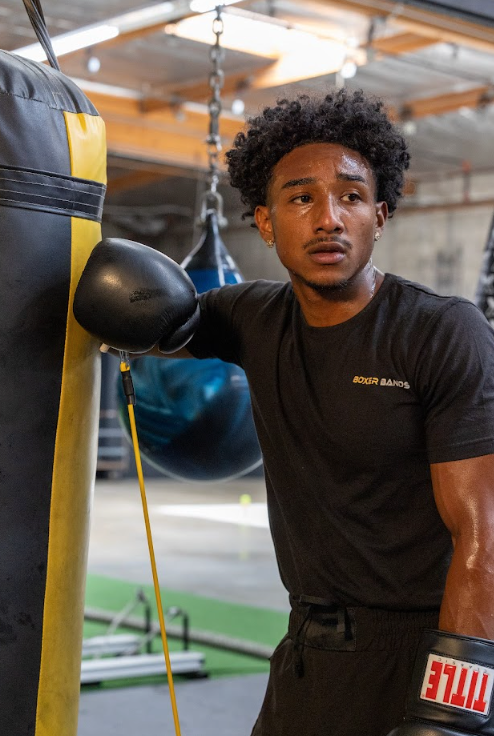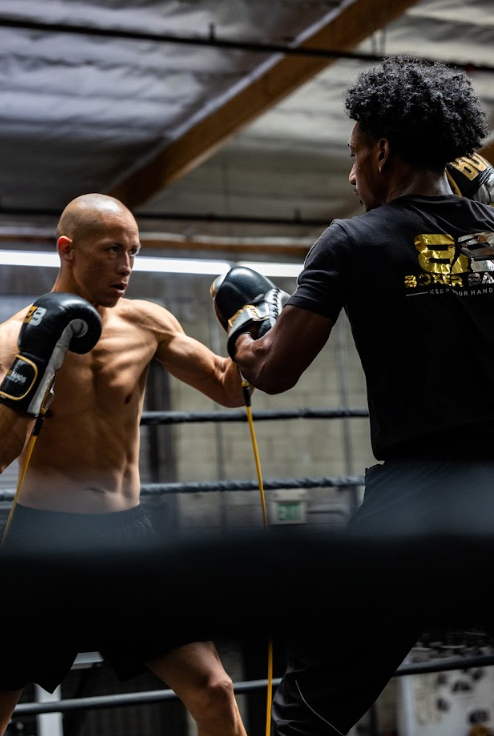In the world of combat sports, one fundamental principle stands out above all others: keeping your hands up. It's a simple concept that carries immense significance for both defense and offense. However, despite its crucial role in a fighter's success, there are relatively few dedicated training methods specifically aimed at reinforcing this essential skill.
In this article, we'll explore the importance of keeping your hands up and delve into the reasons behind the scarcity of training techniques focused solely on this aspect of combat sports.
The Significance of Keeping Your Hands Up:
-
Defensive Advantage: The primary purpose of keeping your hands up is to protect your face, chin, and vital organs from incoming strikes. By positioning your hands close to your face, you create a barrier that significantly reduces the likelihood of getting hit cleanly. This defensive advantage minimizes the risk of knockout punches and ensures you can better absorb and evade blows during an exchange.
-
Faster Counters: Maintaining a high guard allows you to launch counterattacks more efficiently. With your hands in close proximity to your head, you can quickly unleash punches and maintain fluidity in your movements. This enables you to exploit openings in your opponent's defense and seize the initiative in a fight.
-
Improved Vision and Awareness: By keeping your hands up, you maintain an unobstructed field of vision, allowing you to better anticipate and react to your opponent's actions. This heightened situational awareness enables you to read your opponent's movements, identify potential threats, and respond strategically.
The Limited Training Methods:
Despite the undeniable importance of keeping your hands up, the number of dedicated training methods designed specifically for this purpose remains relatively limited. Several factors contribute to this scarcity:
-
Boxing/Martial Arts Fundamentals: The practice of keeping your hands up is traditionally ingrained in the fundamental teachings of boxing and other martial arts disciplines. Trainers and coaches emphasize the significance of this skill from the very beginning, making it an integral part of a fighter's foundational training. Consequently, there may be less emphasis on isolated drills targeting this specific aspect, as it is integrated into broader training routines.
-
Repetitive Drills: Training the act of keeping your hands up often involves repetitive drills that simulate real fight scenarios. These drills focus on enhancing muscle memory and conditioning the fighter to instinctively maintain a high guard. Examples include shadowboxing, mitt work, and bag work, where the emphasis is on executing proper technique while ensuring the hands remain in the correct defensive position.
-
Personalized Coaching: Since the positioning of the hands may vary slightly from one fighter to another due to factors like individual style, reach, and height, personalized coaching becomes essential. Trainers work closely with fighters to fine-tune their hand placement and guard, tailoring it to their specific attributes and strengths. This individualized approach may contribute to the limited availability of standardized training methods for keeping the hands up.
Keeping your hands up is a fundamental aspect of combat sports, offering a myriad of benefits ranging from defense to offense and heightened situational awareness. While there may be a relative scarcity of dedicated training methods specifically aimed at this skill, the importance of maintaining a high guard is extensively emphasized in boxing and other martial arts. Through repetitive drills, personalized coaching, and integrating this principle into overall training routines, fighters develop the necessary muscle memory and instinctive reflexes to keep their hands up throughout a fight.
As you progress in your combat sports journey, remember that the proper positioning of your hands can be the difference between victory and defeat. Embrace the fundamental principle of keeping your hands up, and work closely with your coach to refine this crucial skill.




Leave a comment
This site is protected by hCaptcha and the hCaptcha Privacy Policy and Terms of Service apply.